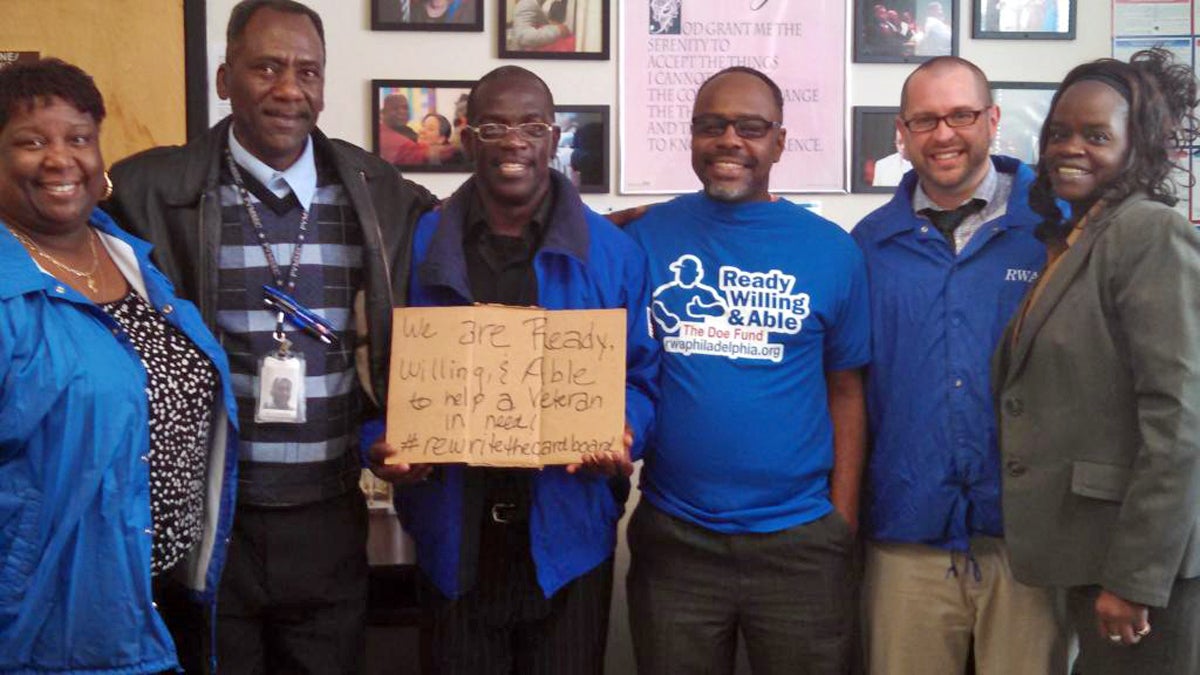‘#Rewrite the cardboard’ campaign highlights Philly’s formerly homeless vets

Veterans Multi-Service Center visits Ready Willing and Able (Image via Ready Willing & Able Twitter)
Seeking to “flip the script” on homelessness the Veterans Multi-Service Center is encouraging “upwardly mobile” vets to share success stories through a social media campaign. It’s called #RewriteTheCardboard, referring to the cardboard signs homeless people hold up asking for money.
Anthony Procaccini is one “success story” in progress. His family had been sleeping on friends’ couches when his fiancee contacted VMC. “I have a low-paying job, [so] it was hard for me to come up with a security deposit,” said Procaccini, who also has a seven-month old son. VMC helped Procaccini and his family get permanent housing in Upper Darby. “They’re helping me get a better job,” said Procaccini, who has construction experience but currently works the counter at a gas station.
He said he didn’t feel prepared to transition out of the service in 1998. “You don’t leave with any job skills except for how to shoot a rifle 500 to 1,000 feet. Maybe I should have thought of that when I was 18,” he said.
Procaccini is one of around 500 vets and their families placed into permanent housing each year by the VMC. In addition to the 50,000 veterans who are homeless on a given night, according to the U.S. Department of Housing and Urban Development, 1.4 million more veterans like Procaccini are at risk of losing housing.
Breaking the cycle
VMC Board president Mustafa Rashed, who served in the US Navy during the 1990s (and serendipitously lived at the same base as Procaccini, they discovered), said the group works to provide vets with everything they need to build up a safety net and avoid ending up on the street. Support in housing, job training and placement help veterans “sustain what they’ve been given.” That way, “they stay in [the system].”
VMC receives grant money from the US Department of Veterans Affairs to serve low-income veterans.
That can mean anything from chasing down discharge papers to changing the perception of veterans. Rashed said the familiar image of a veteran “with a sign that says ‘I’ll work for food’ or something” should be turned on its head and replaced with a message of progress. “We’re just taking something that’s already out there and flipping it and saying this is what we think we can do with veterans,” said Rashed.
VMC opened its doors in 1980 to serve veterans of the Vietnam War. The organization is service-member led. It serves over 200,000 meals, places 300 veterans in jobs and 500 in homes each year. For more information, visit VMCenter.org.
WHYY is your source for fact-based, in-depth journalism and information. As a nonprofit organization, we rely on financial support from readers like you. Please give today.

